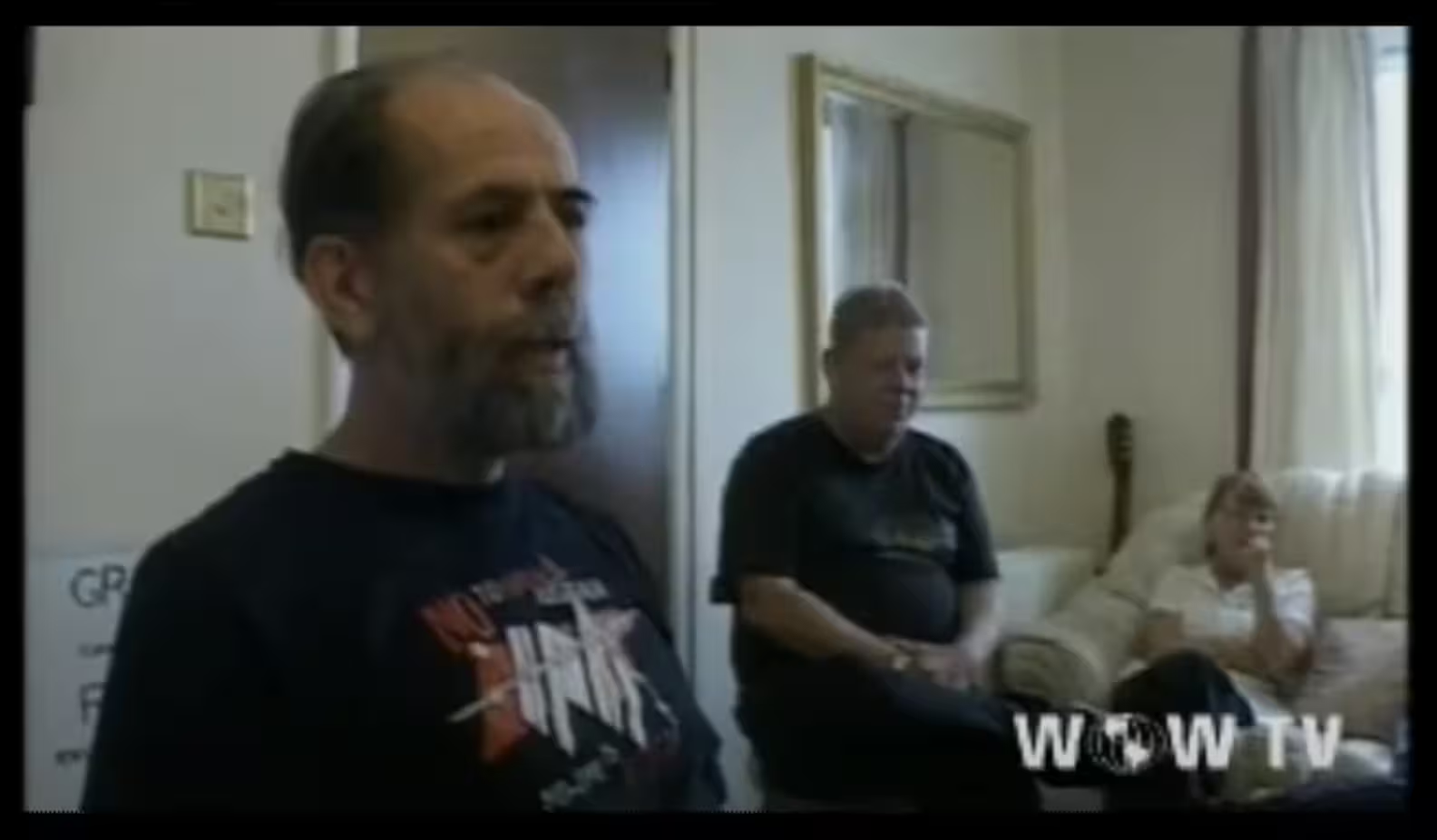The Jesus Christians are a Christian movement founded by Dave McKay, who encouraged its members to renounce all worldly possessions in the belief that it’s not possible to serve both money and God.

Accused of being a cult, their most notorious and certainly their strangest behaviour is that they encouraged their members to donate their kidneys to strangers, as an act of pure altruism. It’s a behaviour that was, at the time of filming, illegal in the UK; the authorities believed that anyone donating an organ to a stranger must be either insane (in which case they should be protected from themselves) or secretly being paid (which isn’t allowed because of the potential for exploitation that it creates).
But the Jesus Christians argue that they’re just being altruistic, and that this behaviour is entirely rational.
If you have something that you don’t need to sustain your life, and you can give it to someone else, and it will help them to sustain their life, whatever that may be, you should give it to them for their benefit.
In Kidneys for Jesus, Ronson follows the Jesus Christians as they navigate the moral, legal and public-relations issues that swirl around their attempts to give away their body parts.
The focus is particularly on one of the group’s members: an Australian living in London called Susan who wants to donate her kidney to someone. Because it’s illegal, she surreptitiously leaves business cards in dialysis wards and waiting rooms, and that’s how she meets her two potential recipients: Larry in Colorado and Christine in Scotland.

The film is ultimately a sympathetic portrait, especially of Susan who comes across as sane, thoughtful, and driven by an intense desire to do good with her life. Ronson can see the good in her and seems to want quite sincerely to make the case that what she and the other Jesus Christians are doing is good, and should be legal. She ends up donating her kidney to Larry, bonding with him in the process, and afterwards seems genuinely pleased to have done so.
The biggest obstacle to his telling that story, though, is the Jesus Christians’ leader. Morally and practically McKay ends up being a distraction from the human story that Ronson seemingly wants to tell, and a distraction from the questions of how someone can do something so truly selfless for another person and why more people don’t.
He’s a manipulative kook, and not even particularly good at manipulation. You get the sense that the Jesus Christians probably aren’t a cult, but that it’s not for want of trying on McKay’s part. As McKay himself effectively says at one point in the film, if he was more persuasive, if he could actually brainwash people, then they’d probably have more than a handful of members.

Ronson was allowed access to the group in the first place because he’d written about them positively at a time when the press was haranguing them following the “kidnapping” of Bobby Kelly, a boy that ran away with the group but who it was established, when he was found, had done so entirely consensually.
But McKay was using Ronson. He hoped to stir up a furore in the tabloid press and then use Ronson’s positive case to set the record straight, thereby earning the fame and attention that the gutter press could provide while pulling one over on them as revenge for his treatment during the Bobby Kelly case.
During filming, Ronson writes about – among other things – the 23-year-old Casey, a member of the Jesus Christians for just a few months who decided to donate a kidney. Ronson mentioned in his piece that Casey had regrets upon coming round – regrets that ultimately subsided. But writing about the regrets was enough to earn McKay’s ire, and Ronson’s access was revoked.

All of these machinations and manipulations only succeed in making more remote the world that McKay is ostensibly trying to bring about, poisoning the well of their own argument.
Three years after the film was released, in 2006, it became legal to donate organs to a stranger in the UK; it’s now regulated by the Human Tissue Authority. What I assume were Ronson’s initial feelings turned out to be right: this is a selfless act, is capable of being a beautiful thing, and should be allowed. It just needs people like McKay get out of the way.